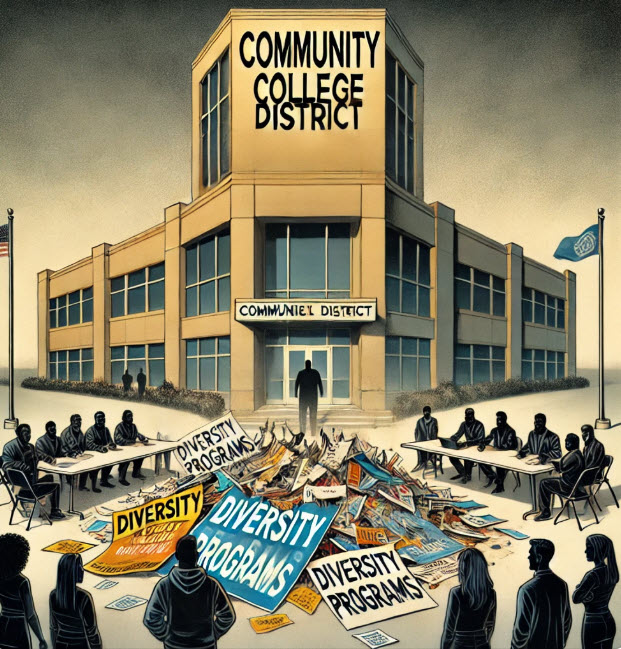Lawsuit alleges the Department of Education shared confidential student data with the Department of Government Efficiency (DOGE)
 Representing the University of California Student Association, Student Defense and Public Citizen Litigation Group filed a lawsuit against the Department of Education for sharing confidential student data with the so-called Department of Government Efficiency (DOGE).
Representing the University of California Student Association, Student Defense and Public Citizen Litigation Group filed a lawsuit against the Department of Education for sharing confidential student data with the so-called Department of Government Efficiency (DOGE).
The lawsuit alleges that on February 3, 2025, The Washington Post reported that DOGE staffers had gained access to multiple internal systems with the Department of Education, including a financial aid dataset that contains the personal information of millions of students enrolled in the federal student aid program. As a federal agency, the Department of Education is subject to the requirements of the Privacy Act of 1974, which makes the improper disclosure and misuse of sensitive personal and financial information unlawful. In addition, the Department’s records contain tax information protected by confidentiality provisions of the Internal Revenue Code.
According to the complaint, the Defendants have violated the Privacy Act, Internal Revenue Code, and Department regulations by allowing DOGE-affiliated individuals to access the Department’s data and the computer systems that house federal student financial aid information.
A copy of the lawsuit can be found by clicking the link below.

 Yavapai Community College is inviting students and community members to submit artwork that reflects the theme of “Peace.” Selected pieces will be prominently featured at the Yavapai College Peace Summit, taking place on Thursday, April 3, and Friday, April 4, on the Prescott Campus, contributing to the event’s mission of fostering unity and meaningful dialogue.
Yavapai Community College is inviting students and community members to submit artwork that reflects the theme of “Peace.” Selected pieces will be prominently featured at the Yavapai College Peace Summit, taking place on Thursday, April 3, and Friday, April 4, on the Prescott Campus, contributing to the event’s mission of fostering unity and meaningful dialogue. The sole spring exception was supposed to be the March 25 meeting, which had been scheduled as an in-person session at the Verde Valley Campus. However, the Board has now changed that meeting to a Zoom-only format—without offering any explanation.
The sole spring exception was supposed to be the March 25 meeting, which had been scheduled as an in-person session at the Verde Valley Campus. However, the Board has now changed that meeting to a Zoom-only format—without offering any explanation. Arizona Governor Katie Hobbs, the Arizona Commerce Authority, and partners from Boeing and Honeywell have joined forces to launch the first-of-its-kind Aerospace & Defense Future48 Workforce Accelerator. This aerospace and defense-focused facility will open in the fall of 2026 at Chandler-Gilbert Community College’s (CGCC) Williams campus, bringing together students and industry partners.
Arizona Governor Katie Hobbs, the Arizona Commerce Authority, and partners from Boeing and Honeywell have joined forces to launch the first-of-its-kind Aerospace & Defense Future48 Workforce Accelerator. This aerospace and defense-focused facility will open in the fall of 2026 at Chandler-Gilbert Community College’s (CGCC) Williams campus, bringing together students and industry partners.
 OPINION: Some members of the Yavapai Community College District Governing Board seem to harbor a strong dislike for the newest elected member, William Kiel. (Most likely viewing him as asking too many questions; being too persistent, wanting greater transparency, and doesn’t necessarily agree with all their views.) That animosity became evident at the outset of the February 18 Board meeting when Kiel attempted to speak to a motion before it had been voted on. In response, the Chair McCasland employed a sleight-of-hand maneuver to pass the motion, bending procedure just enough to disguise what some feel was her real intent, which was to muzzle Kiel.
OPINION: Some members of the Yavapai Community College District Governing Board seem to harbor a strong dislike for the newest elected member, William Kiel. (Most likely viewing him as asking too many questions; being too persistent, wanting greater transparency, and doesn’t necessarily agree with all their views.) That animosity became evident at the outset of the February 18 Board meeting when Kiel attempted to speak to a motion before it had been voted on. In response, the Chair McCasland employed a sleight-of-hand maneuver to pass the motion, bending procedure just enough to disguise what some feel was her real intent, which was to muzzle Kiel. OPINION: Fourth District Yavapai Community College District Governing Board member Patrick Kuykendall launched a vicious personal attack on First District Representative William Kiel during the February 18 Governing Board meeting. The outburst occurred amid a discussion on the authority and accountability of Yavapai’s president, Dr. Lisa Rhine, and the adoption of a resolution that vested virtually all power in her.
OPINION: Fourth District Yavapai Community College District Governing Board member Patrick Kuykendall launched a vicious personal attack on First District Representative William Kiel during the February 18 Governing Board meeting. The outburst occurred amid a discussion on the authority and accountability of Yavapai’s president, Dr. Lisa Rhine, and the adoption of a resolution that vested virtually all power in her. Federal judge Deborah Boardman on Monday, February 24, 2025 issued a temporary restraining order saying disclosure of the education department’s sensitive personal information to DOGE affiliates is irreparable harm that money damages cannot rectify.” She also said the Office of Personnel Management can’t disclose the information.
Federal judge Deborah Boardman on Monday, February 24, 2025 issued a temporary restraining order saying disclosure of the education department’s sensitive personal information to DOGE affiliates is irreparable harm that money damages cannot rectify.” She also said the Office of Personnel Management can’t disclose the information. OPINION: At Yavapai Community College, President Dr. Lisa Rhine’s leadership has fostered a pervasive culture of fear among faculty and staff. Employees risk termination for as little as engaging with a District Governing Board member or responding to media inquiries—a directive Dr. Rhine has enforced with unmistakable clarity.
OPINION: At Yavapai Community College, President Dr. Lisa Rhine’s leadership has fostered a pervasive culture of fear among faculty and staff. Employees risk termination for as little as engaging with a District Governing Board member or responding to media inquiries—a directive Dr. Rhine has enforced with unmistakable clarity.